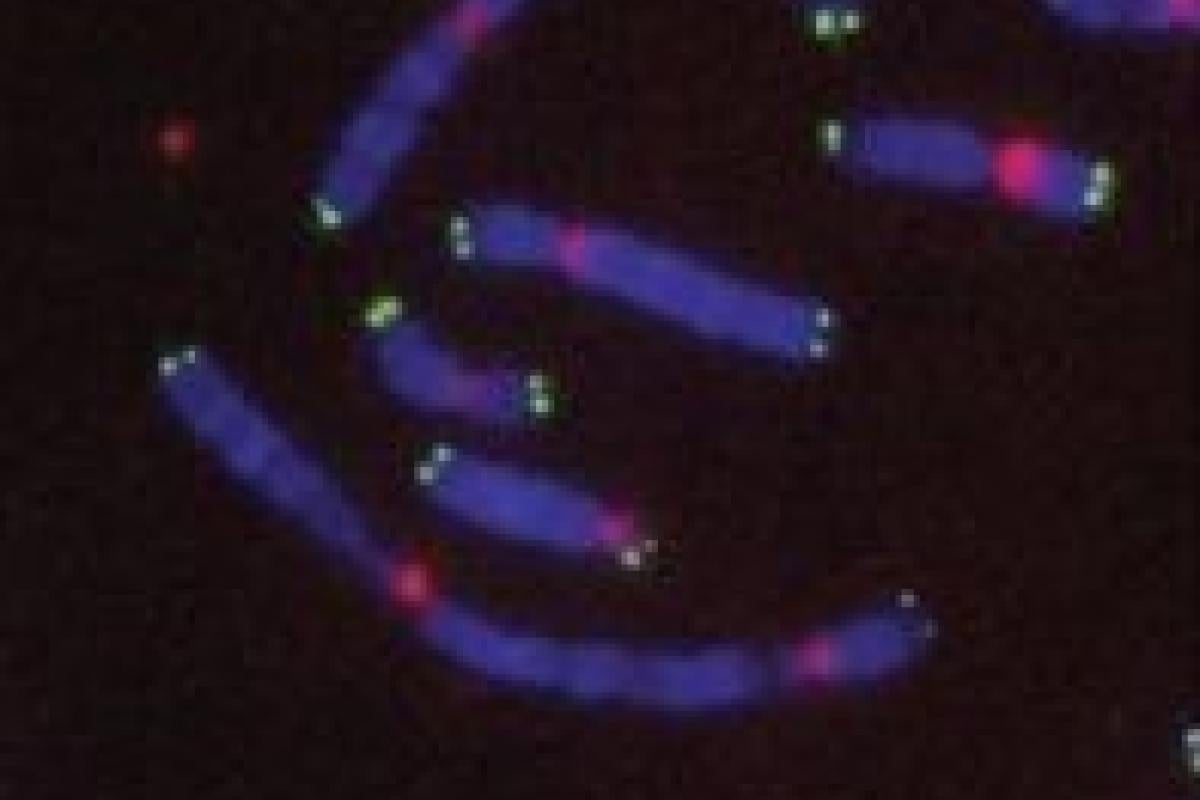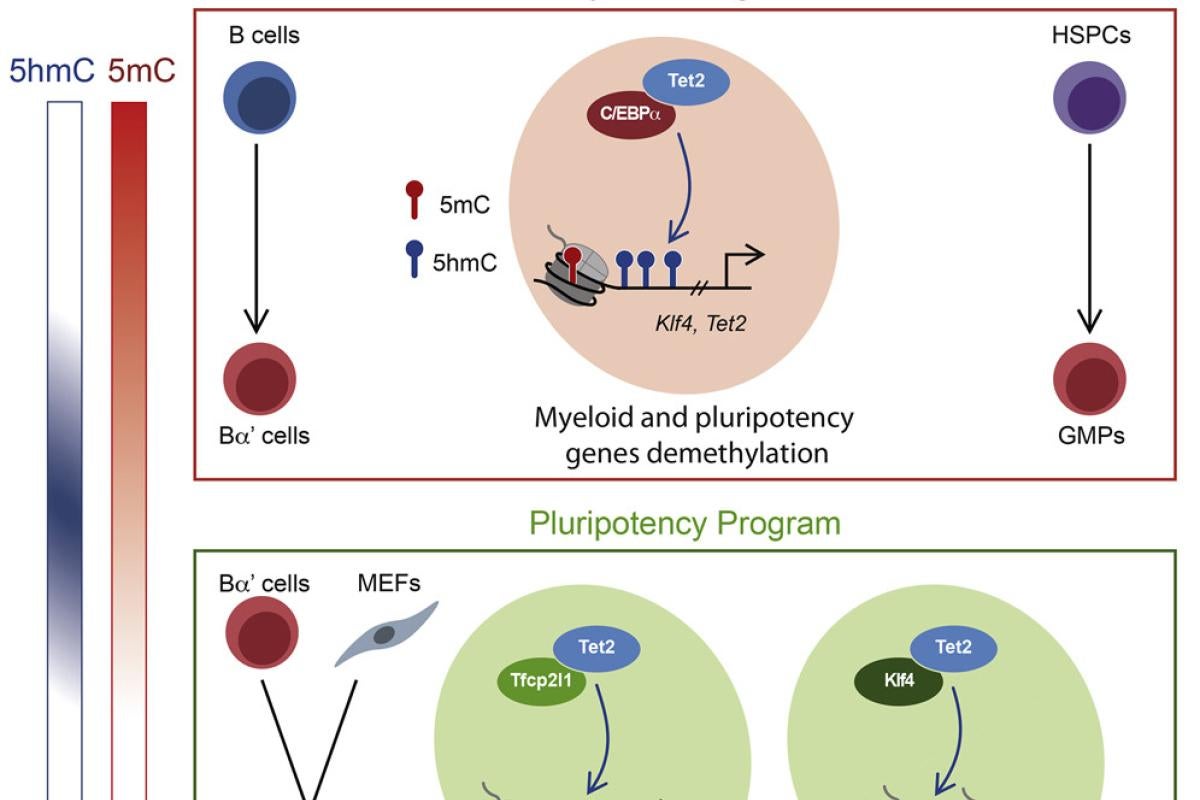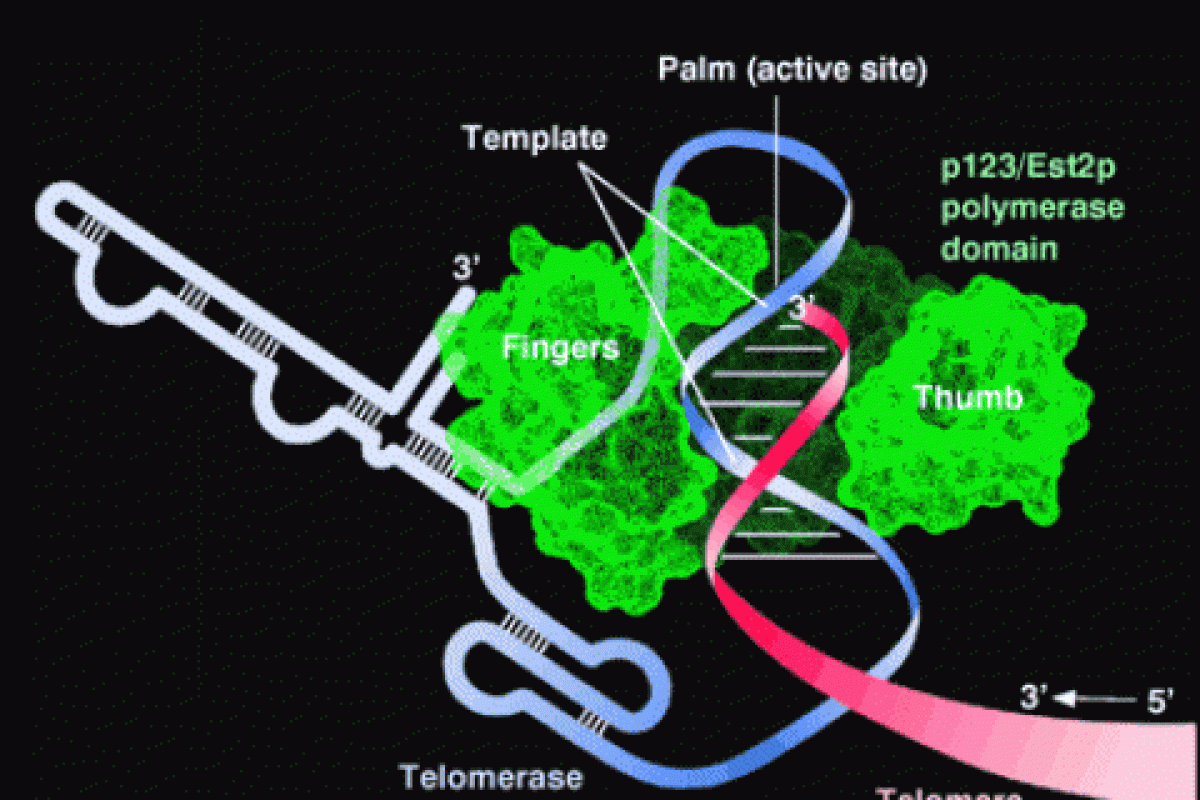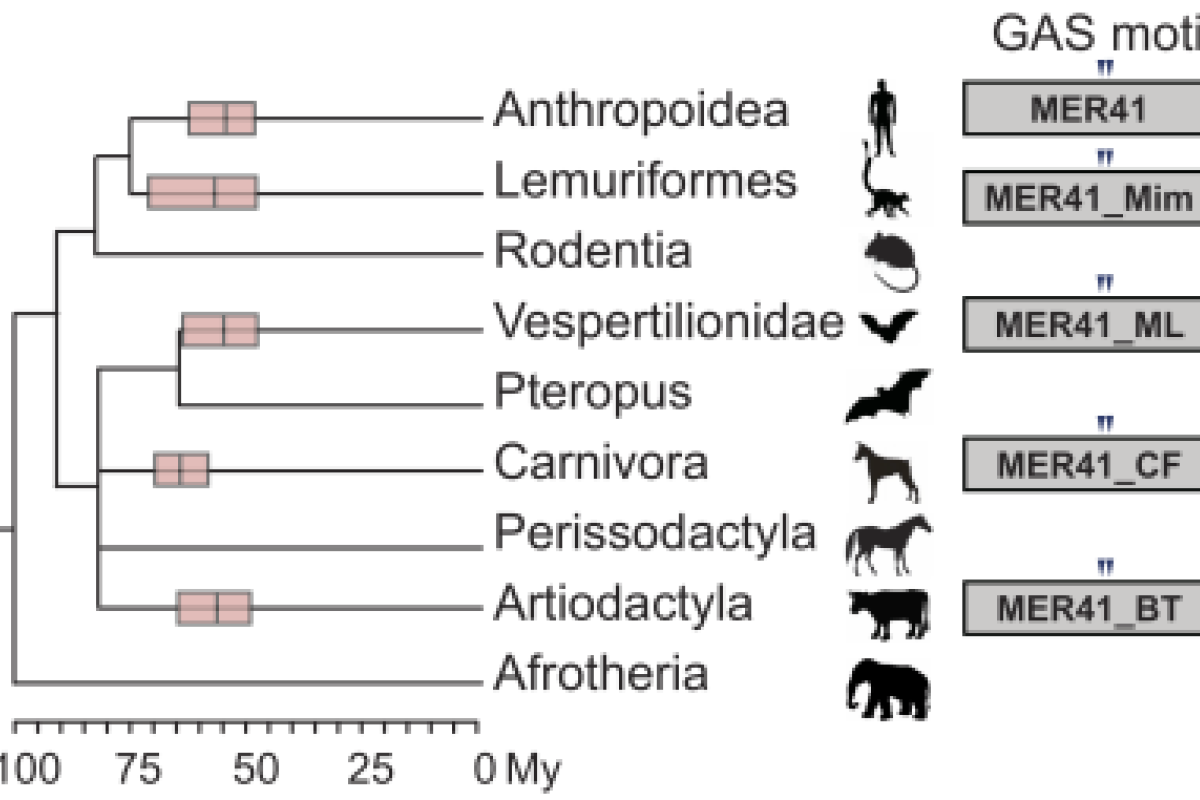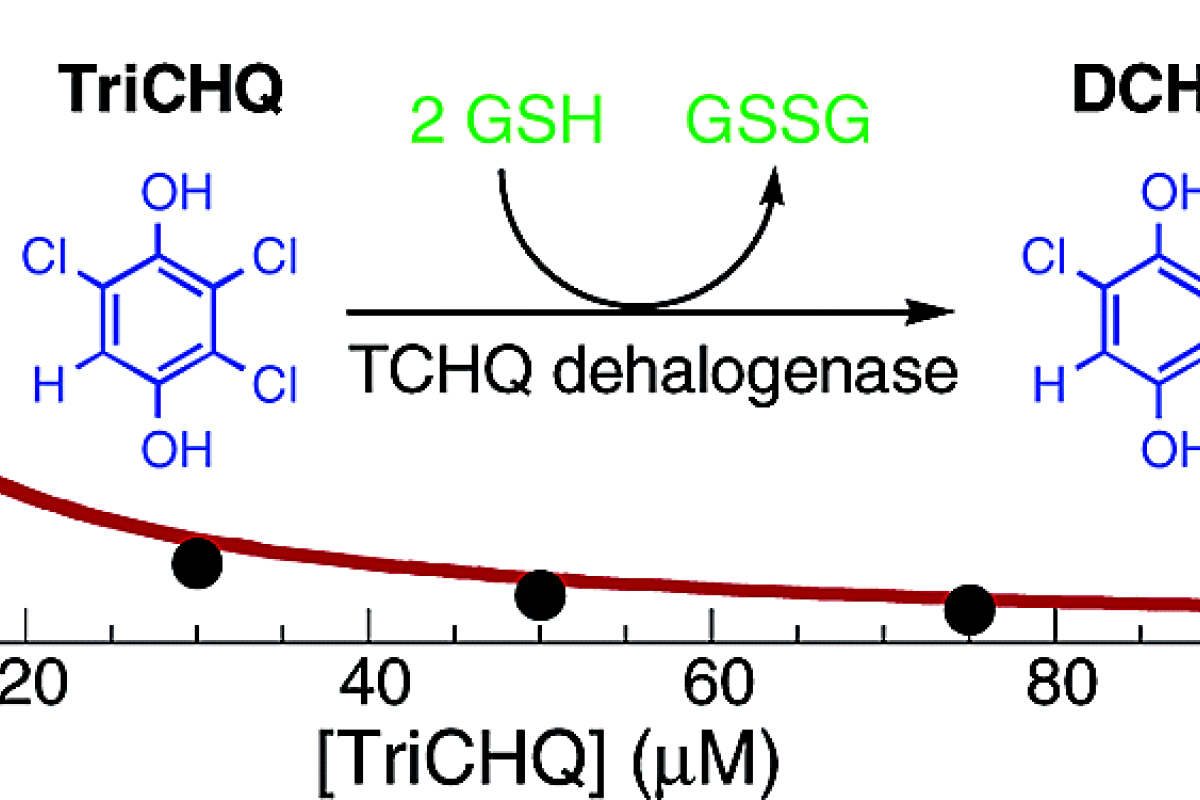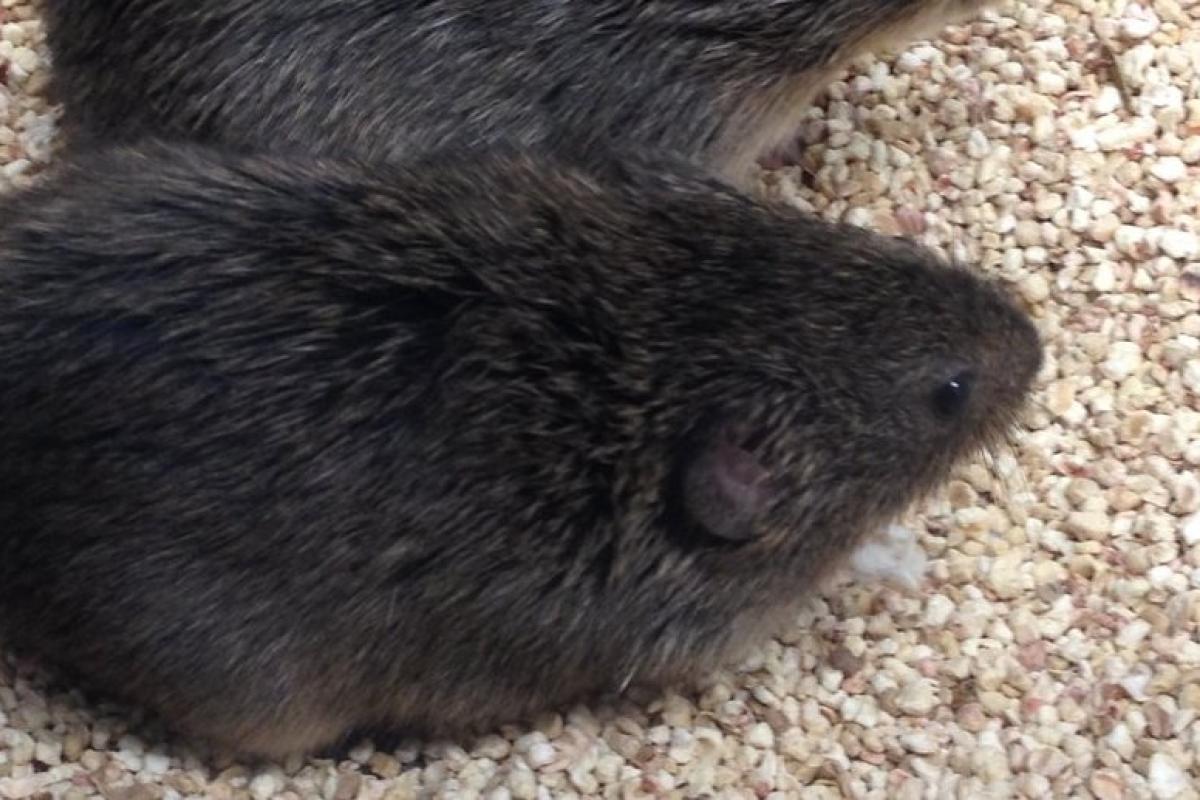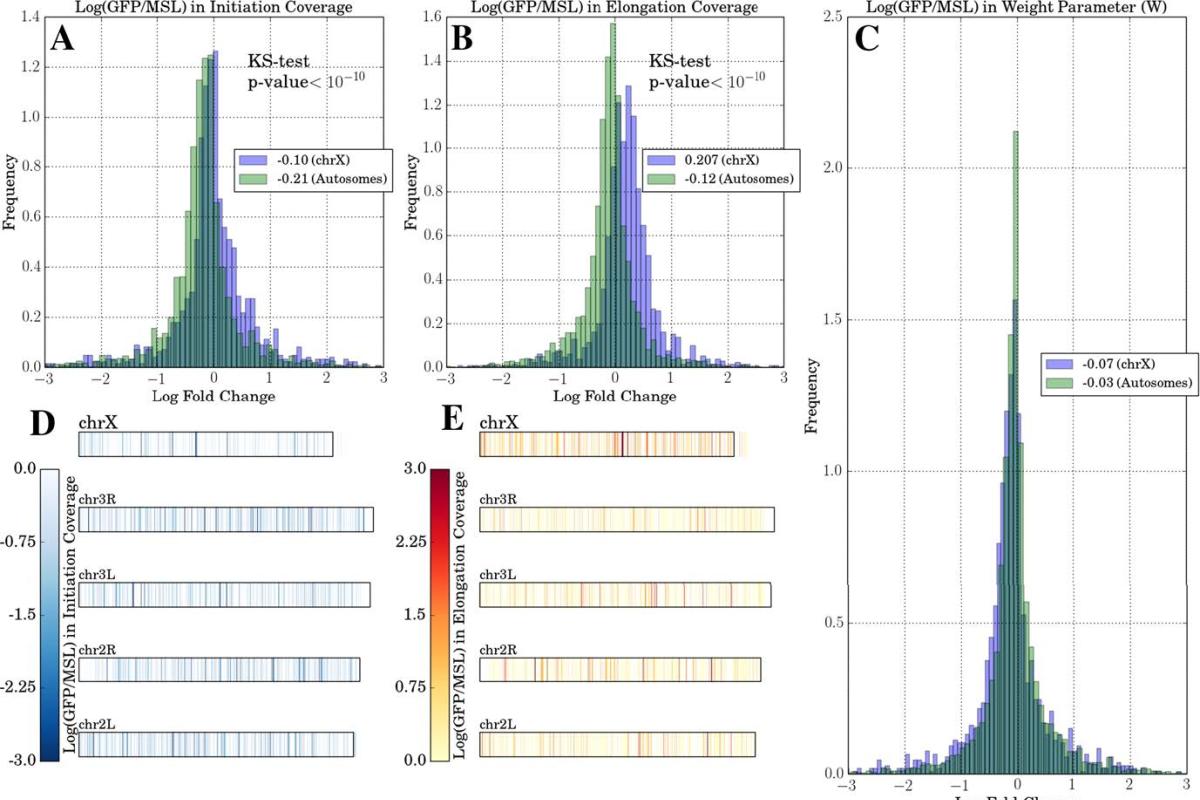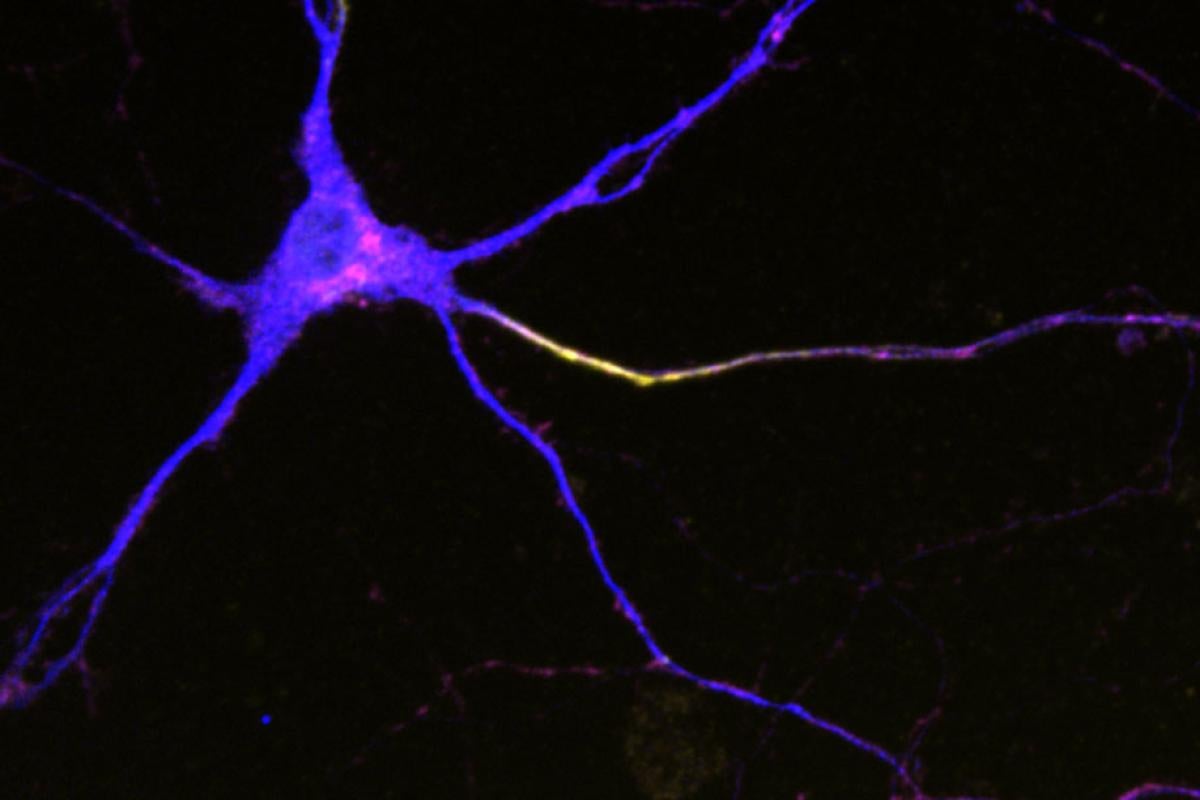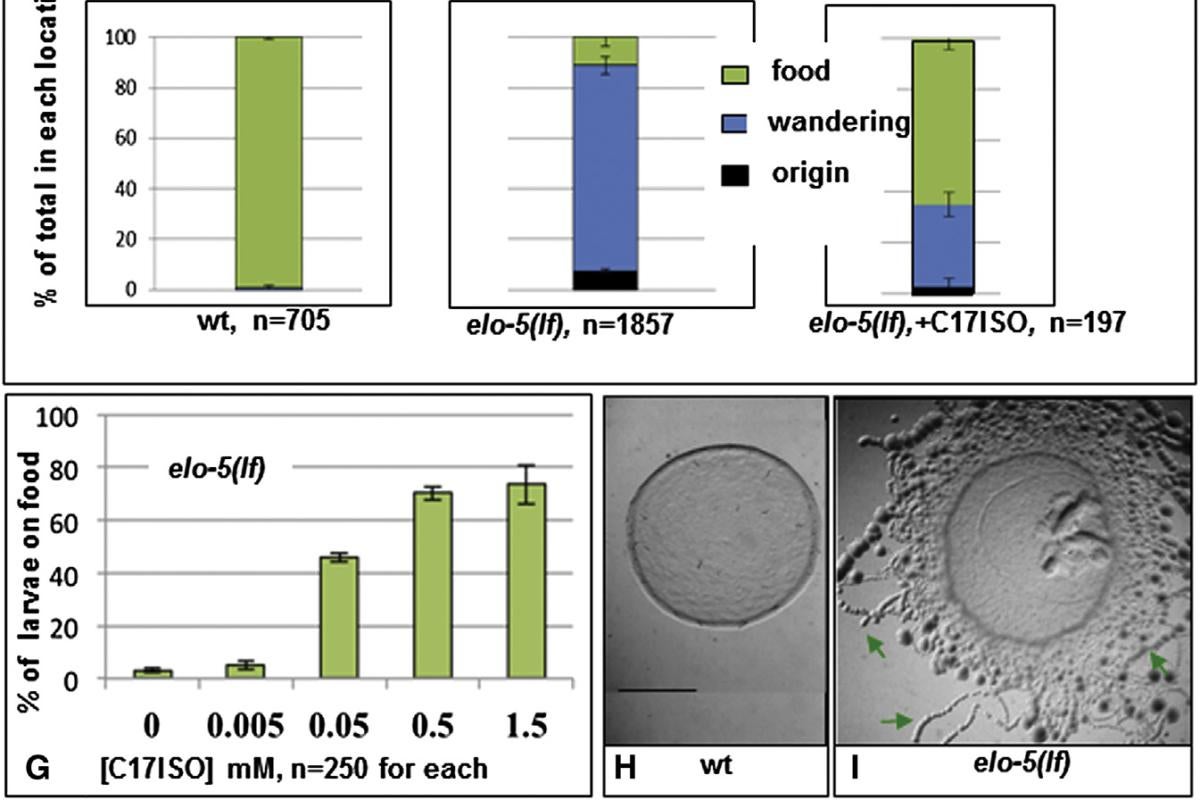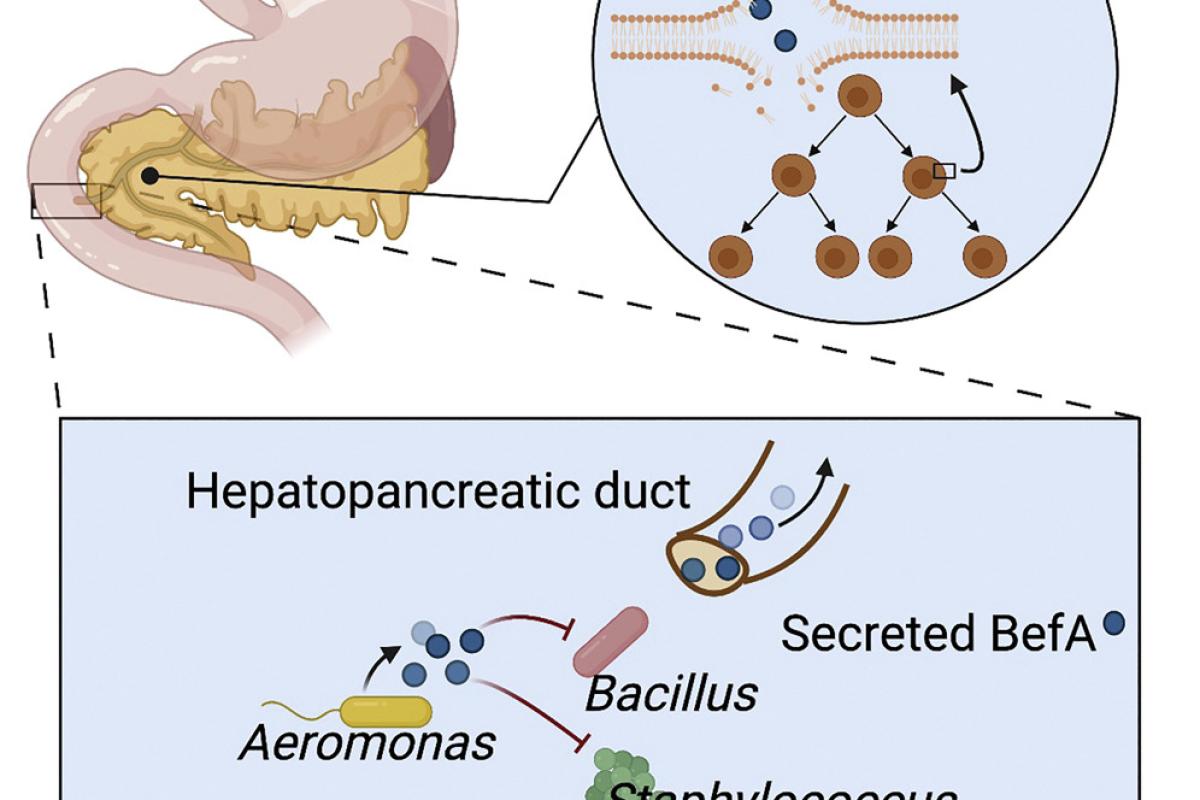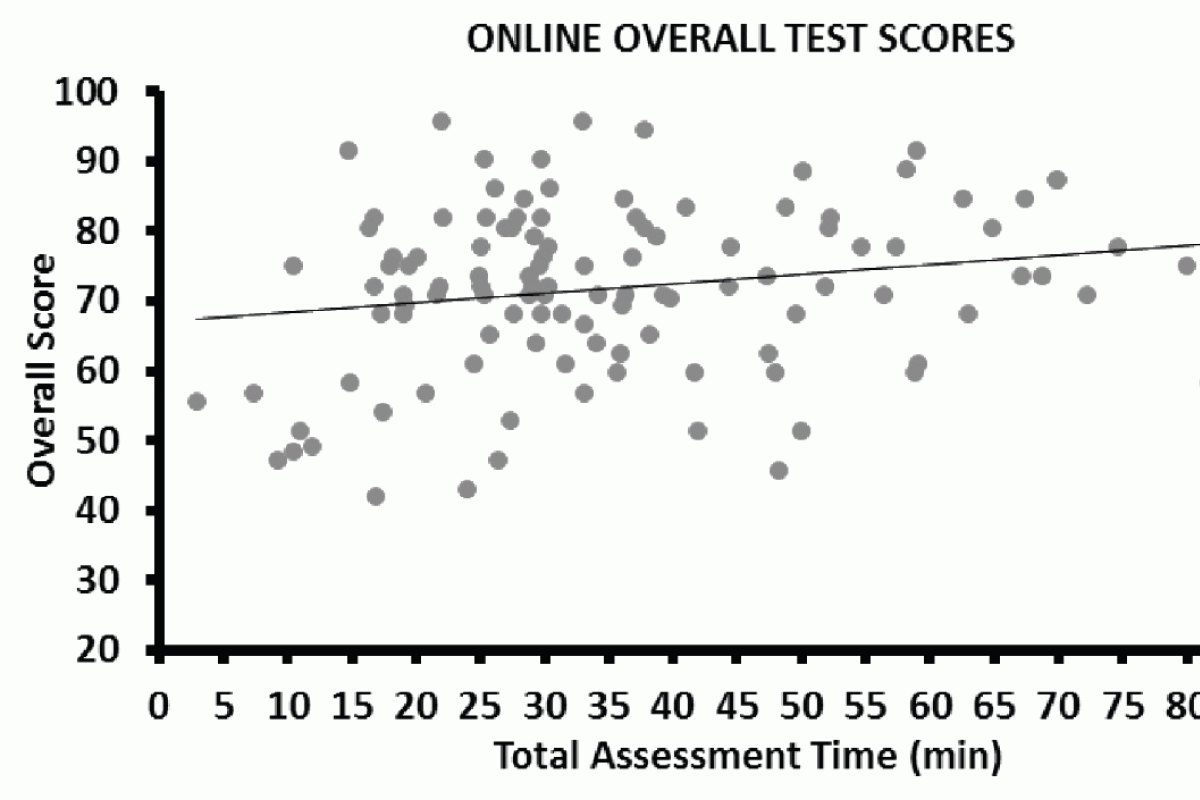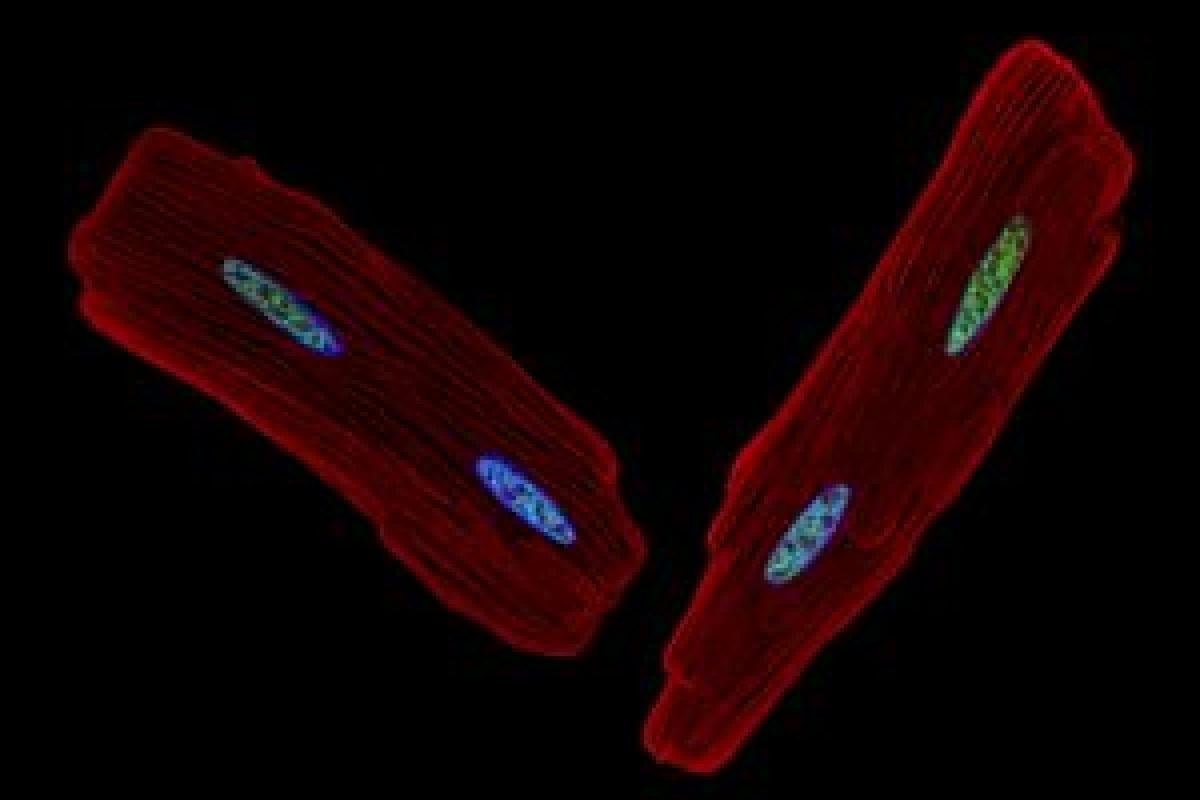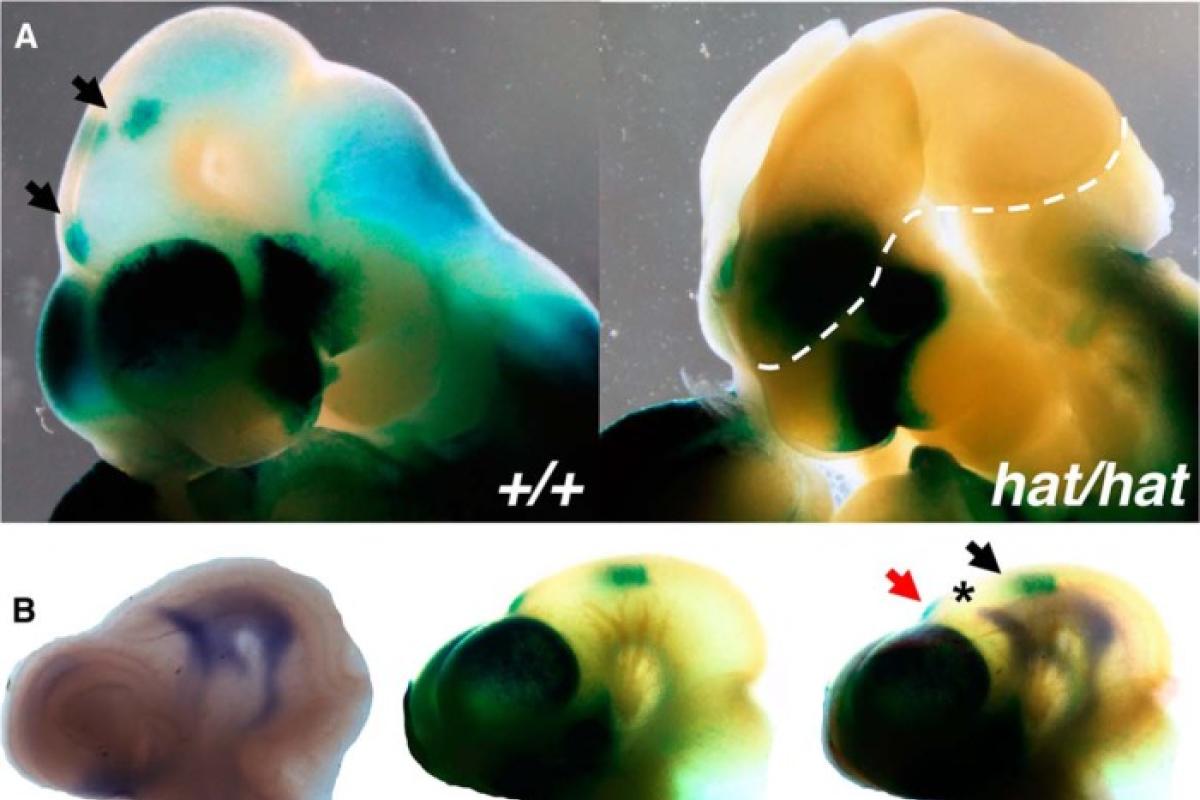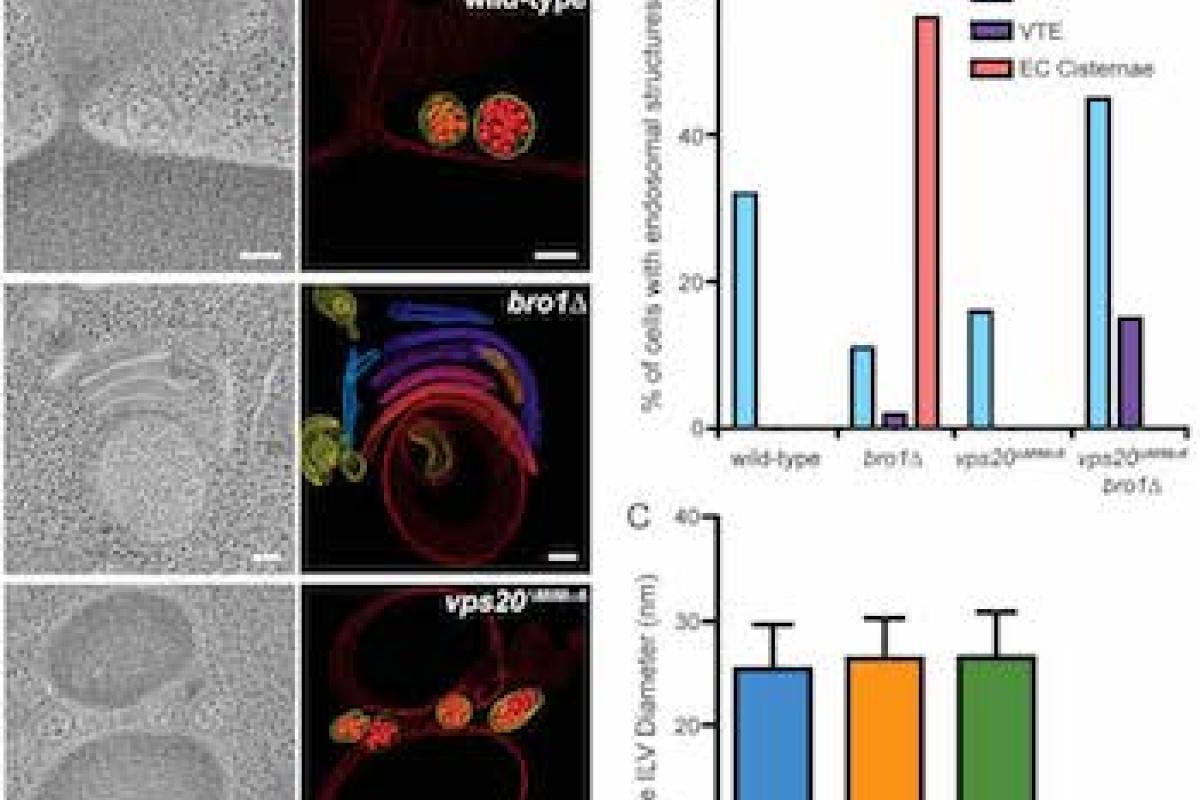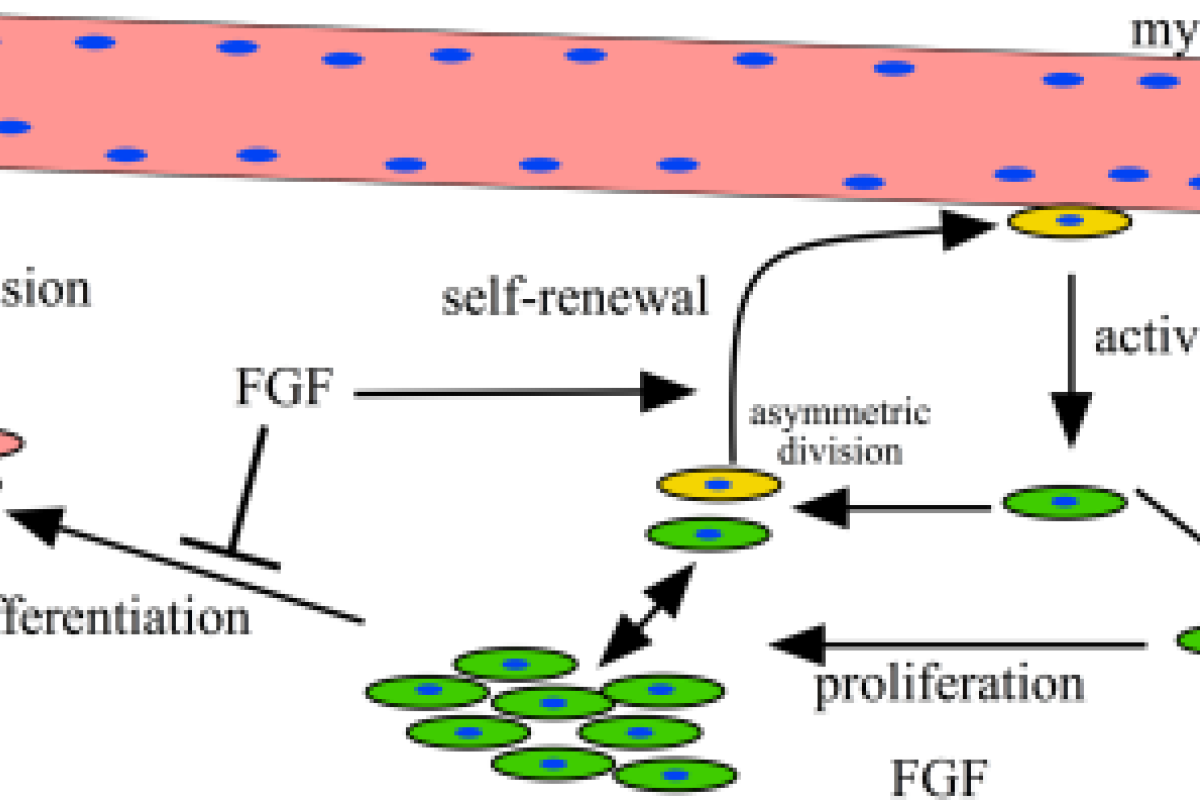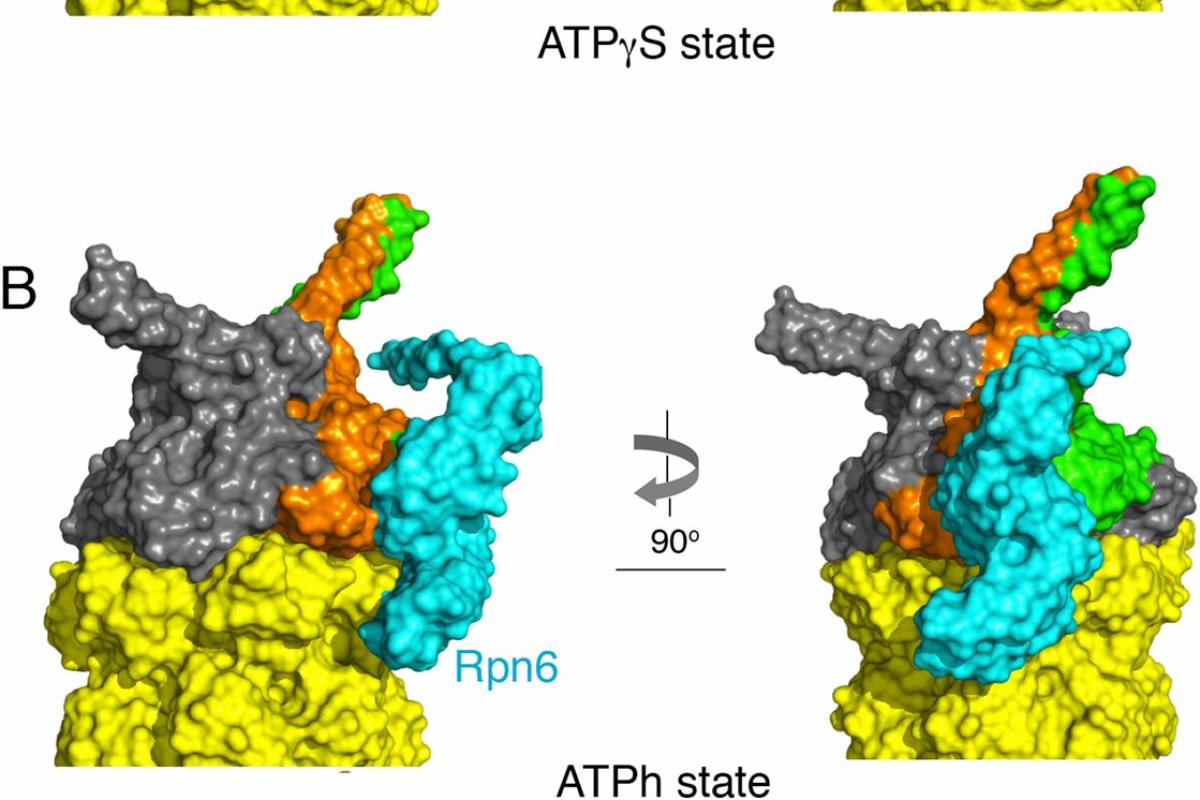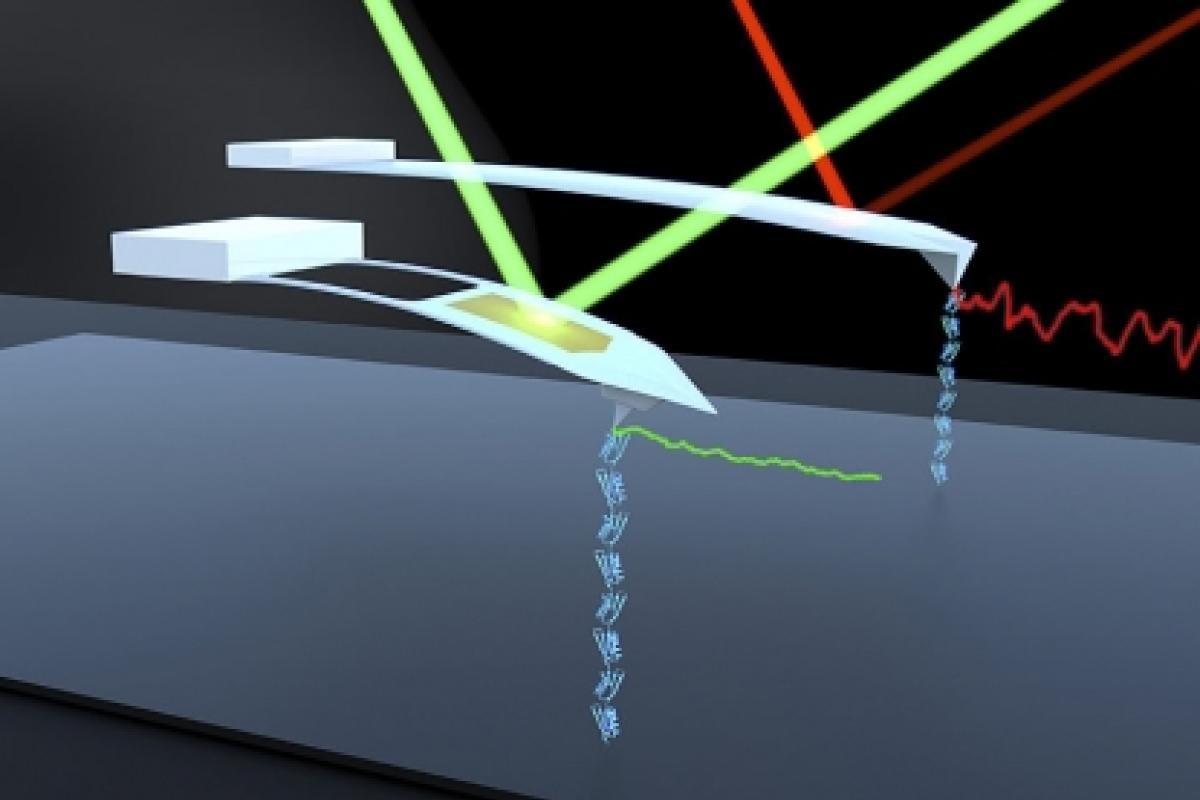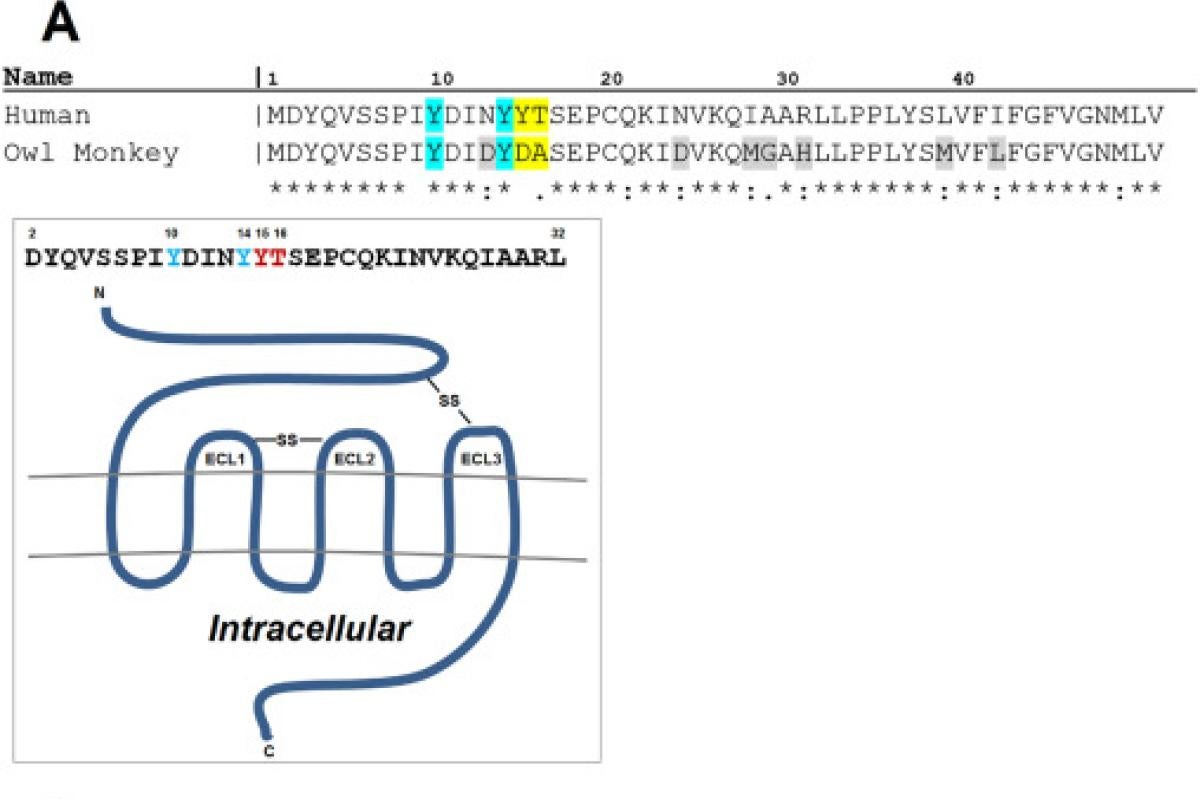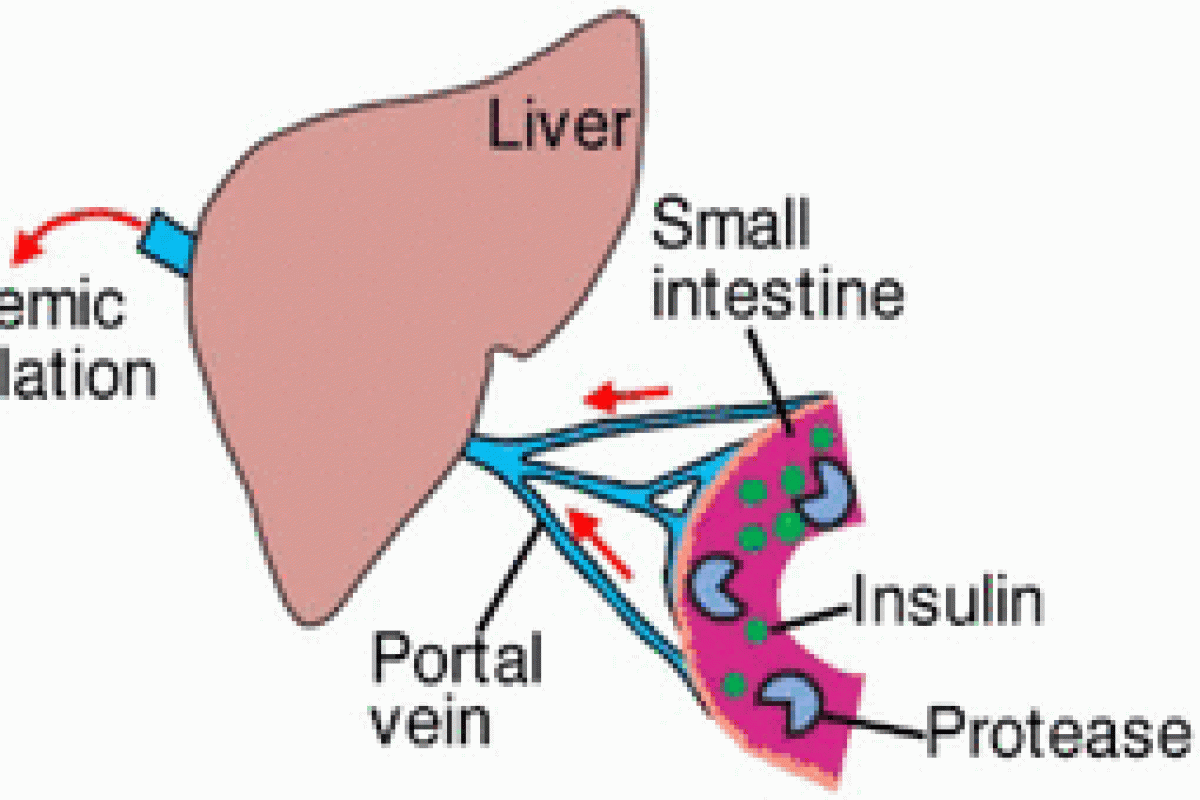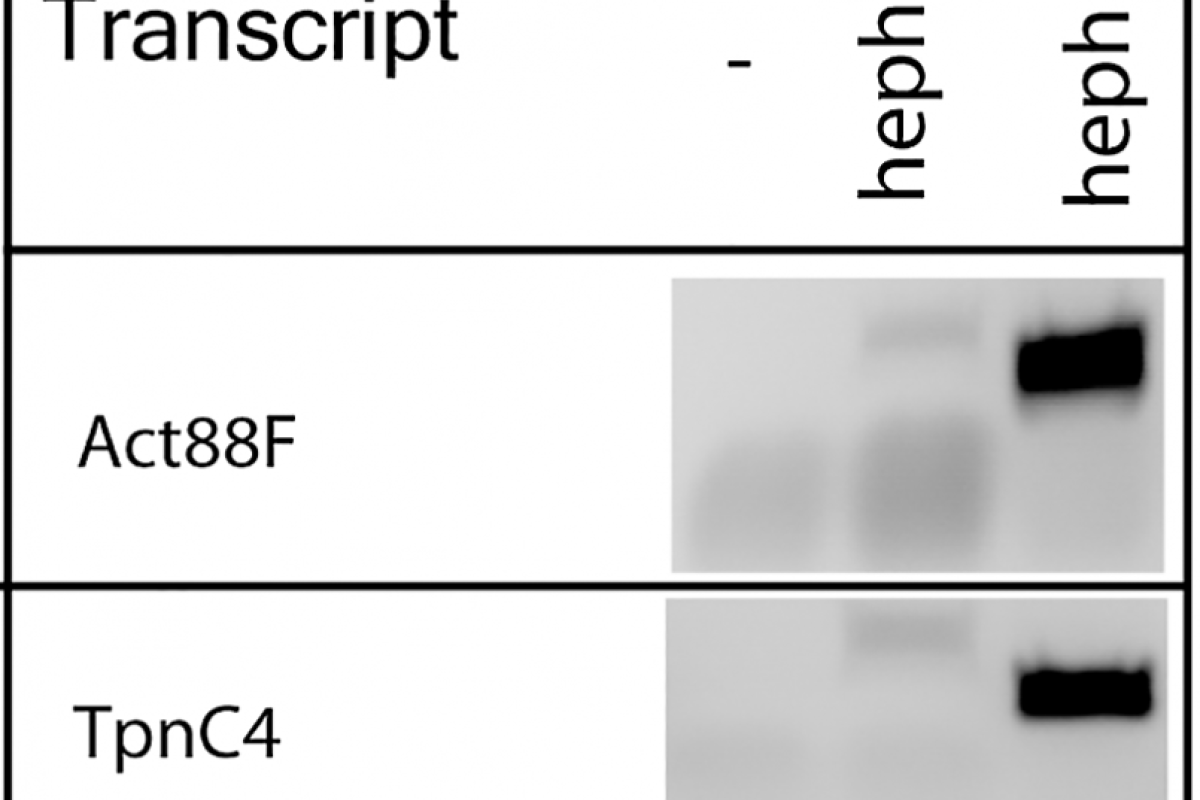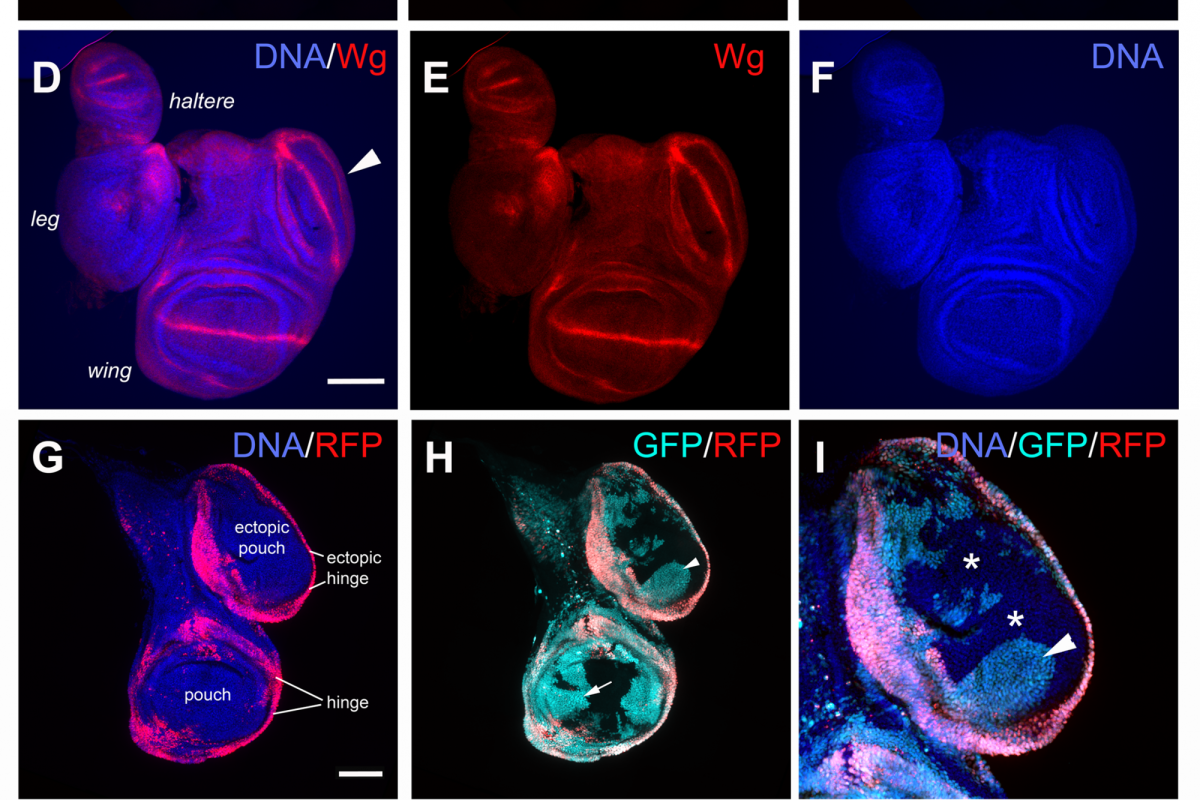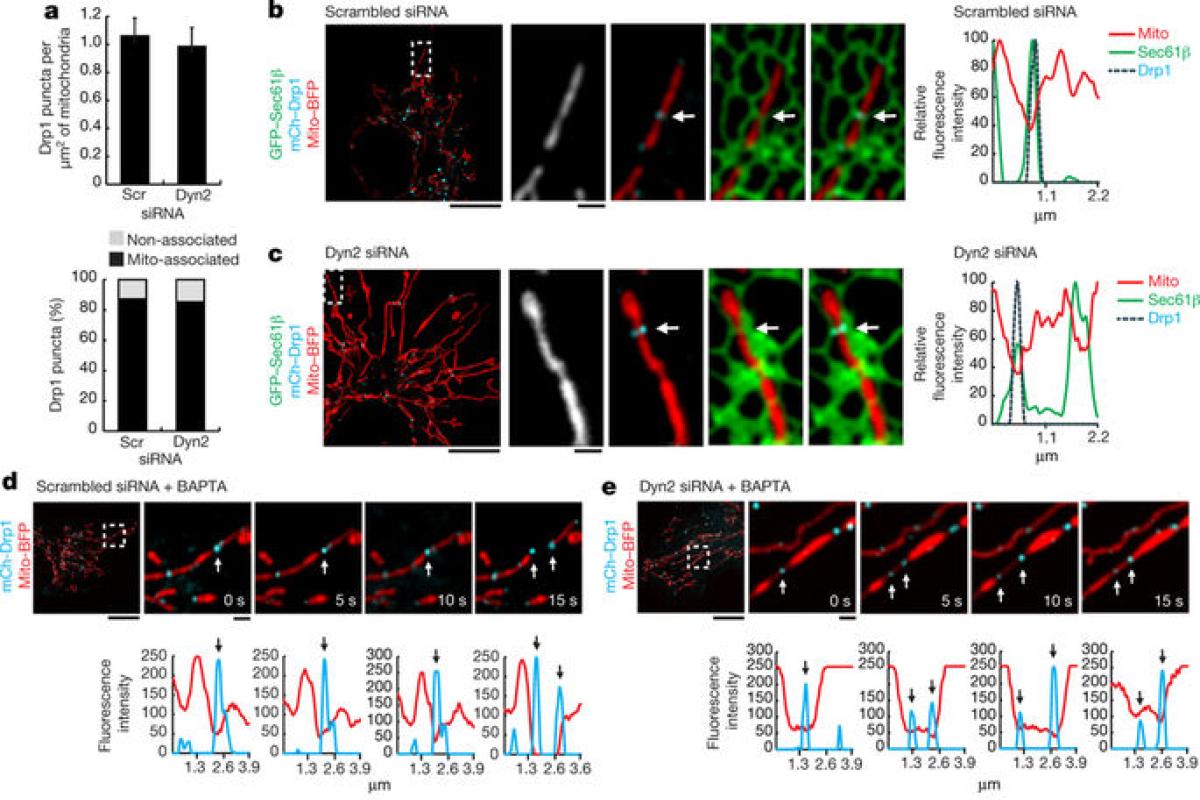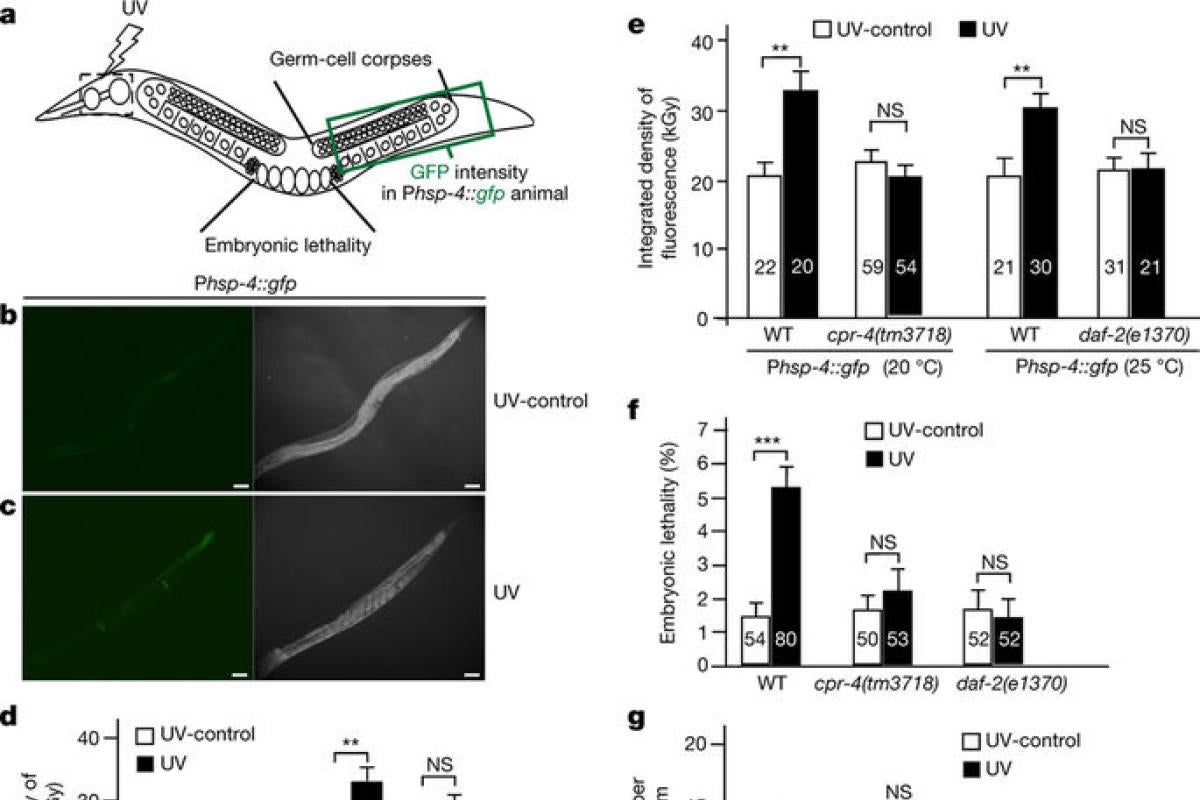Undergraduate Research in MCDB Labs
Many MCDB faculty members mentor undergraduate students within their labs on campus. These experiences can be tranformative for students and and faculty alike. They can result in conference presentations and peer reviewed publications, and are often the basis of an Undergraduate Honor's Thesis Project. A list of MCDB faculty and their desired qualifications for research students as well as information on applying for a research experience in individual labs can be found below.
The Arnoult lab focuses on genome stability, DNA repair and telomere biology.
- The Arnoult Lab is not taking new undergraduates for the 2025-2026 academic year. Check back in spring 2026 for updated availability.
- The Arnoult Lab is not taking new undergraduates for the 2025-2026 academic year. Check back in spring 2026 for updated availability.
We are interested in stem cell biology and cell fate change with an emphasis on epigenetic and post-transcriptional regulation
- The Brumbaugh Lab is not taking new undergraduates for the 2025-2026 academic year. Check back in spring 2026 for updated availability.
- The Brumbaugh Lab is not taking new undergraduates for the 2025-2026 academic year. Check back in spring 2026 for updated availability.
Telomerase, an RNP enzyme critical for chromosome end-replication, provides the subject for much of our research.
- Contact the Cech Lab directly to determine availability. Thomas.Cech@Colorado.EDU
- Contact the Cech Lab directly to determine availability. Thomas.Cech@Colorado.EDU
The Chuong lab is interested in the evolution of gene regulation in adaptation and disease.
- The Chuong Lab is not taking new undergraduates for the 2025-2026 academic year. Check back in spring 2026 for updated availability.
- The Chuong Lab is not taking new undergraduates for the 2025-2026 academic year. Check back in spring 2026 for updated availability.
Molecular evolution of enzymes and metabolic pathways; mechanistic enzymology; biodegradation of xenobiotic pollutants; bioinformatics.
- The Copley Lab is not taking new undergraduates for the 2025-2026 academic year. Check back in spring 2026 for updated availability.
- The Copley Lab is not taking new undergraduates for the 2025-2026 academic year. Check back in spring 2026 for updated availability.
How bacterial pathogens evade host molecular and cellular defenses.
- The Detweiler Lab is not taking new undergraduates for the 2025-2026 academic year. Check back in spring 2026 for updated availability.
- The Detweiler Lab is not taking new undergraduates for the 2025-2026 academic year. Check back in spring 2026 for updated availability.
The Dombrovski Lab studies the molecular principles of brain wiring: linking genes with circuits and behaviors.
- Sophomore or Junior students preferred
- 10+ hr/week for at least two consecutive semesters
- Pre-requisite courses: MCDB1150, MCDB2150, and MCDB3135 (preferred)
The Dombrovski Lab is not taking new undergraduates for the 2025-2026 academic year. Check back in spring 2026 for updated availability.
Mechanistic basis for individual differences in behavior and how these impact likelihood to develop mental illness.
- Sophomore or Junior students preferred
- 10-15 hr/week for at least 3 semesters
- Strong preference for students wanting to complete an Honor's Thesis
Send an email to zoe.donaldson@colorado.edu that includes:
- Resume/CV
- Unofficial Transcript
- Cover letter that specifically states your long-term goals (grad school, med school, etc.)
Understanding transcriptional regulation: how does it work, evolve, and respond to perturbations?
- Freshman, Sophomore, Junior students preferred
- 5-15 hr/week for at least two semesters
- Pre-requisite courses: MCDB 2150 - Genetics
- Must have a willingness to do computational work
Send an email to robin.dowell@colorado.edu that includes:
- Resume/CV
- A statement of research interests and your math and computer background (if any)
The Eichel Lab investigates how neurons build their elaborate polarized architecture and how these mechanisms go awry in neurological disease states.
- Freshmen or sophomore students preferred
- 10-15hr/week for at least four semesters
- Pre-requisite courses: MCDB 1150, MCDB Introductory lab (MCDB 1161 or MCDB 1171 or MCDB 2171)
- Strong preference for students wanting to complete an Honor's Thesis
The Eichel Lab is not taking new undergraduates for the 2025-2026 academic year. Check back in Spring 2026 for updated availability.
Genetic and molecular analysis of cell signaling, gene expression and metabolic events in regulating cellular and developmental events.
- Sophomore or Junior students preferred
- 10-15hr/week for at least 3 semesters
- Pre-requisite courses: MCDB 1150, MCDB 2150, MCDB 3135, MCDB 3145
- Willingness to learn to work independently on a research project
Send an email to mhan@colorado.edu or make an appointment. Be prepared to share your reasons for wanting to join the lab.
The Hill Lab studies how the microbiota influences the pancreas after birth.
The Hill Lab is not taking new undergraduates for the 2025-2026 academic year. Check back in spring 2026 for updated availability.
The Hill Lab is not taking new undergraduates for the 2025-2026 academic year. Check back in spring 2026 for updated availability.
Cryo-electron microscopy and 3-D reconstruction of large macromolecular assemblies and cellular structures, whenever possible in vivo.
The Hoenger Lab is not taking new undergraduates for the 2025-2026 academic year. Check back in spring 2026 for updated availability.
The Hoenger Lab is not taking new undergraduates for the 2025-2026 academic year. Check back in spring 2026 for updated availability.
Interactive teaching methods to increase conceptual understanding.
The Knight Lab is not taking new undergraduates for the 2025-2026 academic year. Check back in spring 2026 for updated availability.
The Knight Lab is not taking new undergraduates for the 2025-2026 academic year. Check back in spring 2026 for updated availability.
Myosin mutations and their effect on the heart, skeleton, and overall health.
The Leinwand Lab is not taking new undergraduates for the 2025-2026 academic year. Check back in spring 2026 for updated availability.
The Leinwand Lab is not taking new undergraduates for the 2025-2026 academic year. Check back in spring 2026 for updated availability.
The Niswander lab investigates novel mouse models of embryonic development with the overarching goal of providing insights into fundamental developmental processes, major human birth defects and potential clinical therapies.
The Niswander Lab is not taking new undergraduates for the 2025-2026 academic year. Check back in spring 2026 for updated availability.
The Niswander Lab is not taking new undergraduates for the 2025-2026 academic year. Check back in spring 2026 for updated availability.
Cell biology and genetics of membrane trafficking and protein degradation.
The Odorizzi Lab is not taking new undergraduates for the 2025-2026 academic year. Check back in spring 2026 for updated availability.
The Odorizzi Lab is not taking new undergraduates for the 2025-2026 academic year. Check back in spring 2026 for updated availability.
Stem cell biology; regeneration; skeletal muscle regeneration and aging; skeletal muscle stem cells and gene therapy; growth factors and signal transduction; mouse molecular genetics; muscular dystrophies and neuromuscular diseases.
- Sophomore or Junior students preferred
- 10-20hr/week for at least three consecutive semesters
- Pre-requisite courses: MCDB 3135, MCDB 3145, & MCDB 3140
- Strong desire for research-oriented students
Send an email to Bradley.Olwin@Colorado.EDU and Tenaya.Vallery@colorado.edu that includes:
- A cover letter
- Resume/CV
We study the biogenesis of a molecular machine known as the proteasome, a major protease in eukaryotes.
- Sophomore, Junior, Senior students preferred
- 5-15 hr/week for at least two semesters
- Pre-requisite courses: MCDB 1150, MCDB 2150, MCDB 3135, MCDB 3145
Send an email to Soyeon.Park-1@Colorado.EDU or make an appointment. Include:
- Cover letter
- Resume/CV
- Unofficial transcript
We specialize in developing and applying high precision measurements using optical traps and atomic force microscopes to answer interesting questions.
- Freshman or sophomore students preferred
- 10-15hr/week for at least four semesters
- Pre-requisite courses: MCDB 3135, MCDB Intro Lab (MCDB 1161 or 1171 or 2171), CHEM 1113 & 1133, Physics and/or knowledge of computer algorithms
- Willingness to utilize physical tools to study biological problems and develop expertise and aptitude to take and interpret biophysical data
Send an email to tperkins@Colorado.EDU that includes:
- Cover Letter
- Resume/CV
- Unofficial Transcript including GPA
The Sawyer lab studies viral immunity, viral evolution, and the transmission of viruses from animals to man.
The Sawyer Lab is not taking new undergraduates for the 2025-2026 academic year. Check back in spring 2026 for updated availability.
The Sawyer Lab is not taking new undergraduates for the 2025-2026 academic year. Check back in spring 2026 for updated availability.
The overarching goal of my group is to uncover the regulatory principles of vesicle-mediated cargo transport.
The Shen Lab is not taking new undergraduates for the 2025-2026 academic year. Check back in spring 2026 for updated availability.
- Freshmen, Sophomore, Junior students preferred
- 5-15hr/week for at least one semester
- Pre-requisite courses: MCDB 1150
- Strong preference for students wanting to complete an Honor's Thesis
- Passion for biology and willingness to dedicate time towards project
The Shen Lab is not taking new undergraduates for the 2025-2026 academic year. Check back in spring 2026 for updated availability.
Send an email to Jingshi.Shen@Colorado.EDU that includes:
- Cover letter that states career goals after graduation
Dr. Singh's laboratory studies post-transcriptional gene regulation.
The Singh Lab is not taking new undergraduates for the 2025-2026 academic year. Check back in spring 2026 for updated availability.
The Singh Lab is not taking new undergraduates for the 2025-2026 academic year. Check back in spring 2026 for updated availability.
Our research is focused on molecular and supramolecular structures that facilitate communication between neurons at the chemical synapse and how such structures are perturbed in neurological disease.
- Freshmen or sophomore students preferred
- 5-10hr/week for at least four semesters
- Pre-requisite courses: completion of Beginner Modules in the MCDB Skills Center
Send an email to stowellm@colorado.edu that includes:
- Cover letter
- Resume/CV
- Unofficial Transcript
Our goal is to understand how cells, tissues and organisms survive exposure to high energy radiation such as X-rays.
The Su Lab is not taking new undergraduates for the 2025-2026 academic year. Check back in spring 2026 for updated availability.
The Su Lab is not taking new undergraduates for the 2025-2026 academic year. Check back in spring 2026 for updated availability.
Our lab is studying how proteins generate the shape of the endoplasmic reticulum (ER).
- Junior students preferred
- 10-15hr/week for at least two semesters
- Pre-requisite courses: MCDB 1150, MCDB 2150, MCDB 3135, MCDB 3145
Send an email to gia.voeltz@colorado.edu that includes:
- Cover letter stating long-term goals
- Resume/CV
- Unofficial transcript
Mechanisms of programmed cell death (apoptosis), phospholipid asymmetry in biological membranes, mitochondrial inheritance, and radiation-induced bystander effects, as well as various human diseases associated with abnormalities in these fundamental biological processes.
Contact the Xue Lab directly to determine availability. Ding.Xue@Colorado.EDU
Contact the Xue Lab directly to determine availability. Ding.Xue@Colorado.EDU


